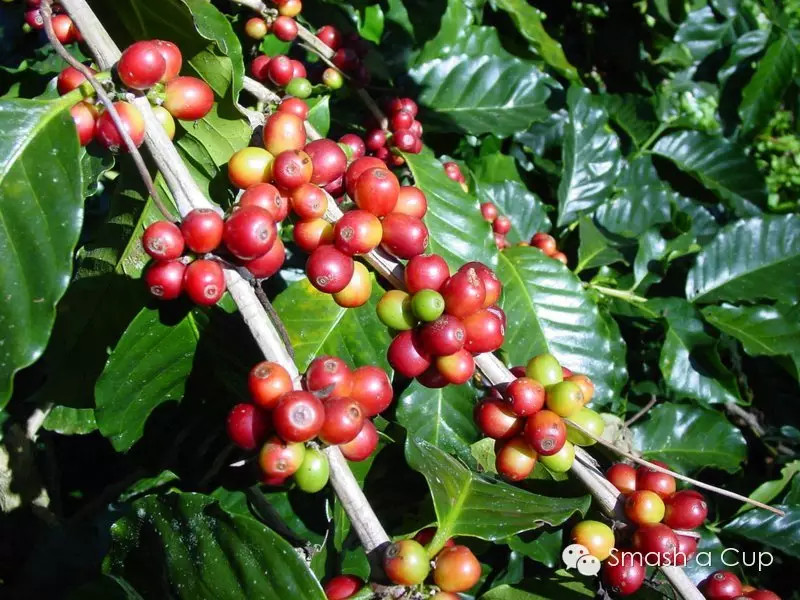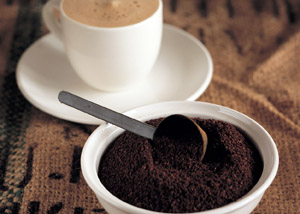Robusta Coffee in Espresso mixed Coffee Fancy Coffee Italian mixed Coffee beans
Application of Robusta Coffee in Espresso blending Coffee
Many friends think that as long as there is Robusta in Espresso coffee blending, it must be a bad thing. Is that really the case? So is 100% Arabica coffee definitely better in taste than Espresso, which uses Robusta coffee? The answer to this question is of different opinions. I remember a barista friend told me that points would be deducted if you use coffee with Robusta in a coffee competition. So is the question really like this? uncle Dou has not verified it. I remember that in 2002, when I first started the industry, in Milan, Italy, there were several Italian roasters who wanted to sell their products to China. After seeing and tasting their products, their products are mixed with 30%Robusta and 50% Arabica. Of course, the latter is more expensive than the first two. This also shows that the use of Robusta coffee is common among local roasters in Italy. Of course, some friends will say that they are commercial beans, not boutique coffee. Please forgive Uncle Dou for not developing this question any more. In short, the child has no mother, it's a long story.
After saying so much, you may think that my answer is that I can't agree and say nothing. But I have listed these Espresso coffees, and I just want to make one point: let's put aside the differences between different genres and talk about the taste of the coffee and the state of the cup. There is no such thing as a principle for Espresso coffee blending. When blending and evaluating a blended coffee, you have to know what you want. Because coffee goes like this: if there is no what you want, then there is no answer to what it is. The criteria for testing what it is must be based on what you want. Fancy coffee, for example, can withstand the addition of a lot of milk if it uses 100% Arabica coffee and is lightly roasted. Either deepen the baking or add Robusta, or the taste of the fancy coffee will become erratic, blurred and unclear. So the most important thing about coffee is that we must answer what we want before we do anything. And those practices must be clearly identifiable in achieving the taste effect, rather than the self-suggestion in the subjective image.

Important Notice :
前街咖啡 FrontStreet Coffee has moved to new addredd:
FrontStreet Coffee Address: 315,Donghua East Road,GuangZhou
Tel:020 38364473
- Prev

Kenya coffee processing method Introduction Fine coffee double washing What flavor
Coffee professionals consider Kenyan coffee to be one of their favorite products because Kenyan coffee contains every feeling we want from a good cup of coffee. It has a wonderful, satisfying aroma, balanced acidity, well-proportioned particles and excellent fruity notes. It's very unique.
- Next

Bourbon grows Guatemalan Coffee beans introduction to Latisha Manor on the Waijangs Plateau
In Guatemala, it is famous for producing high-quality beans, which is the highest elevation and dry climate in the coffee growing area of the country. Located in a rare non-volcanic area in China and the United States, the mountains are potholed and the terrain is very dangerous. Although the elevation is nearly 2000 meters, the warm, dry air from the plains of Mexico protects coffee trees in this area from frost.
Related
- Detailed explanation of Jadeite planting Land in Panamanian Jadeite Manor introduction to the grading system of Jadeite competitive bidding, Red bid, Green bid and Rose Summer
- Story of Coffee planting in Brenka region of Costa Rica Stonehenge Manor anaerobic heavy honey treatment of flavor mouth
- What's on the barrel of Blue Mountain Coffee beans?
- Can American coffee also pull flowers? How to use hot American style to pull out a good-looking pattern?
- Can you make a cold extract with coffee beans? What is the right proportion for cold-extracted coffee formula?
- Indonesian PWN Gold Mandrine Coffee Origin Features Flavor How to Chong? Mandolin coffee is American.
- A brief introduction to the flavor characteristics of Brazilian yellow bourbon coffee beans
- What is the effect of different water quality on the flavor of cold-extracted coffee? What kind of water is best for brewing coffee?
- Why do you think of Rose Summer whenever you mention Panamanian coffee?
- Introduction to the characteristics of authentic blue mountain coffee bean producing areas? What is the CIB Coffee Authority in Jamaica?

